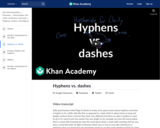
A comparison of hyphens and dashes.
- Subject:
- English Language Arts
- Language, Grammar and Vocabulary
- Material Type:
- Lesson
- Provider:
- Khan Academy
- Provider Set:
- Khan Academy
- Author:
- David Rheinstrom
- Date Added:
- 07/29/2021

A comparison of hyphens and dashes.
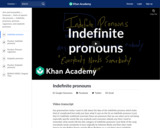
David, Khan Academy's Grammar Fellow, covers three nifty features of indefinite pronouns, which are pronouns that are just a little vague, y'know?
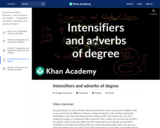
Words like 'very' and 'slightly' are examples of intensifiers and adverbs of degree. Here's how they work!
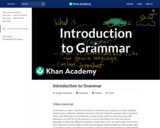
Khan Academy Grammarian David Rheinstrom welcomes you to his favorite topic: the study of language, its rules, and its conventions. By understanding English – by speaking it, by writing it, by reading this very sentence – you are a grammarian yourself!
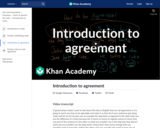
When you match up the subject of a sentence with a verb, it's called 'agreement'. Here's how it works!
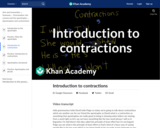
Apostrophes are great at standing in for missing letters, allowing us to shorten words. Paige and David discuss contractions and the Principle of Least Effort.
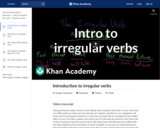
Words like "walk" and "look" are regular verbs – they behave in a predictable way. But there's a whole class of words in English, called irregular verbs, that are harder to predict. David, KA's Grammar Fellow, explains.
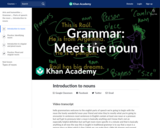
A noun is a word that describes a person, place, thing, or idea. Examples of nouns include names, locations, objects in the physical world, or objects and concepts that do not exist in the physical world; for example, a dream or a theory.
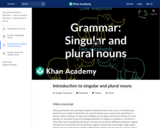
Learn the difference between singular and plural nouns.

What was the Gilded Age? Kim and David discuss the vast wealth and crushing poverty that characterized the era.
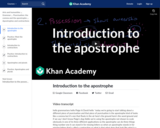
David and Paige, KA’s resident grammarians, introduce a new piece of punctuation: the apostrophe!
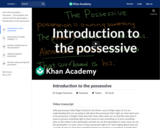
Apostrophes can help show when something belongs to someone. Paige and David explain how!
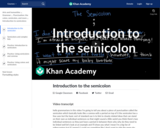
Paige introduces a piece of punctuation called the semicolon; this punctuation can link closely related independent clauses together in a sentence. Created by David Rheinstrom.
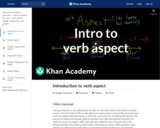
If verb tense allows you to control the past, the present, and the future, then aspect gives you even finer control over time. David, Khan Academy's resident grammarian, explains. Created by David Rheinstrom.
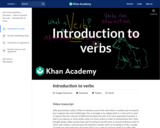
Let's explore what verbs are, and what they do! David, KA's Grammar Fellow, explains.
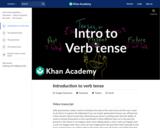
An understanding of verb tense will make you into a TIME WIZARD, with the ability to control the past, the present, and the future – with your words, anyway.
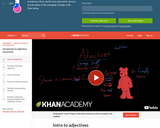
Adjectives are the words we use to modify nouns. David explains how, with the help of a bear.
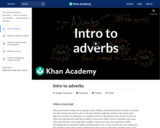
Adverbs are a kind of modifier that you can use to change verbs or adjectives, like 'very' or 'carefully'.
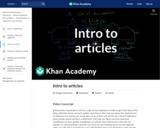
Articles—words like the, a, and an—are special adjectives we use to indicate whether a noun is specific or not specific.
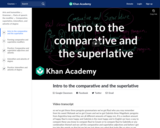
Find out how to be "happier" or even "the happiest!".